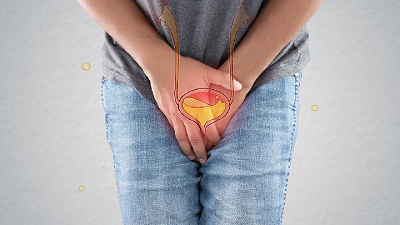Can Seminal Vesiculitis Cause Testicular Enlargement?
Generally speaking, seminal vesiculitis does not directly cause testicular enlargement, and its main symptoms are frequent urination, urgent urination, pain, blood sperm, and so on. But if the inflammation of the seminal vesicle site spreads to the testis and epididymis site, causing orchitis and epididymitis, there may be a pain in the testis site and swelling of the scrotum and other discomforts.

What else might cause testicles to swell?
There are many reasons of testicles swell. It is necessary to determine the cause of testicular enlargement through physical examination and laboratory tests based on the patient's symptoms to diagnose testicular enlargement. The causes of testicular enlargement mainly include the following aspects:
First, trauma. Trauma leads to the rupture of blood vessels in the scrotal wall or tunica albumen, resulting in hematoma, which can lead to testis enlargement. For such patients, surgical debridement is generally used.
Second, testicular tumors. These patients usually have painless testicular enlargement. Physical examination, blood tests, and imaging tests can be used to identify the cause.
Third, inflammation. Common causes include viral and bacterial infections. In addition, mumps virus or Escherichia coli are common sources of infection. At the same time, related diseases need to be identified.
So how to treat seminal vesiculitis?
Anti-inflammatory therapy: Choose the right antibiotic. Acute vesiculitis should be treated until symptoms disappear and continue for 1-2 weeks. To consolidate the effect, patients with chronic seminal vesiculitis should continue for more than four weeks. Commonly used are quinolones, erythromycin, sulfonamides, and so on.
Hemostatic agent: For patients with blood semen, hemostatic sensitive and hemostatic aromatic acid can be selected appropriately.
Drugs that relieve seminal vesicle hyperemia and edema include ethylenestradiol and 5-α HMG-CoA reductase inhibitors.
Physical therapy: Hot water sit-bath, 1-2 times daily. Or perineal or rectal ion introduction, microwave therapy. It is used to improve local blood flow and help inflammation subside.
Traditional Chinese medicine(TCM) treatment: You can choose Diuretic and Anti-inflammatory Pill as a good treatment of seminal vesiculitis. In addition, it has the main effect of clearing heat and detoxifying, activating blood, and relieving pain. It can also kill bacteria, reduce inflammation and reduce swelling. And it doesn't create drug resistance. The disease does not recur after the cure.
Seminal vesicle microscopy: It can clean the blood clots and stones in the seminal vesicle gland under direct vision. Chronic seminal vesiculitis, such as combined with seminal vesicle stenosis, resulting in poor seminal vesicle fluid drainage, can be performed through the urethra ejaculatory duct incision.
Surgical treatment: Acute seminal vesiculitis, such as abscess formation, requires puncture or incision drainage.
Daily nursing of patients with seminal vesiculitis
Adequate rest: Ensuring that patients with seminal vesiculitis have sufficient bed rest in a suitable environment is the key to daily care. Creating fresh air, appropriate temperature and humidity rest environment for them, ensuring a relatively quiet room, and stabilizing the patient's mood greatly help the recovery of seminal vesiculitis.
Sensible diet: The reasonable diet of patients with seminal vesiculitis should follow the principles of light and easy digestion diet: Ensure the foods delicious to promote the appetite of patients; Ensure that patients have adequate protein and vitamin supplies; Eat plenty of fresh fruits and vegetables to prevent constipation.
Life nursing: Encourage seminal vesiculitis patients to drink more water daily to increase urine excretion, which helps eliminate toxins and lower body temperature.
Pay attention to the oral hygiene of seminal vesiculitis patients, and gargle after meals to ensure oral cleanliness. Change and clean the clothes of seminal vesiculitis patients in time to avoid a cold.
Seminal vesiculitis doesn't go away on its own. If men, unfortunately, suffer from this disease, they must be timely to the hospital for examination and treatment.
Get the disease under control early so as not to cause more harm. There are many ways to treat seminal vesiculitis. Patients must choose the appropriate treatment plan based on their conditions to cure the disease completely.
You may also be interested in:



